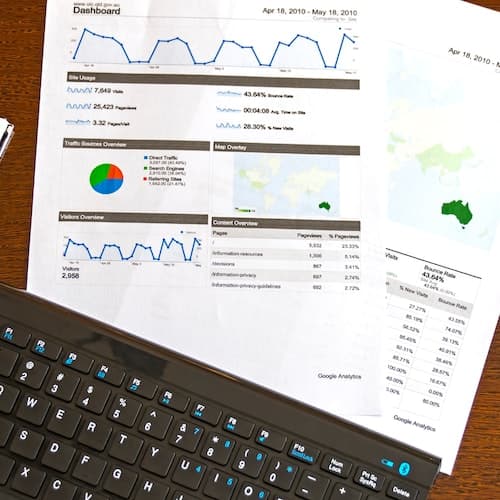the definition of a marketing feasibility study, If you are an entrepreneur and investor and want to do a business or invest in a new project, you need to see the definition of a marketing feasibility study, all the details related to it, and how to prepare it to determine whether the product or service offered by your project has a chance of success in the market sector or not.
Here, Future Vision for e-marketing in Saudi Arabia shows you all the details related to preparing a market feasibility study.

What is a marketing feasibility study?
A marketing feasibility study can be defined as: a set of methods and foundations that determine whether there is a demand for the products or services provided by the project, for which the feasibility study is done during its life span or not, and revolves around the revenues expected to be obtained under the different conditions of the market; in terms of the degree of competition, and whether the market is domestic or external to be exported to.
In another way, it is defined as: the study that gives the entrepreneur sufficient information about the revenues expected to be obtained from the project that the owner wants to do, and through which the costs necessary to make a successful marketing plan are also determined, and the market situation is studied at the present time, and its future status, to see if the project is useful or not.
After defining a marketing feasibility study, it is important to conduct a market feasibility study for your project.

The importance of conducting a market feasibility study
Through the definition of the marketing feasibility study, we find that this study has great importance that we clarify in the following points:
-It is necessary in any project in order to be successful, any businessman or investor who wants to start an investment or a new business, he needs to develop a marketing feasibility study to determine whether the product or service provided by his project has a chance of success in the market sector or not.
-result in the rest of the other aspects of detailed economic feasibility studies, in terms of -making the decision to start in the other stages of studies or stop at this point, if the results of -the market feasibility study are positive, the decision will be made to start conducting technical and engineering feasibility studies for the project, but if these results are negative, the decision will be made to stop conducting feasibility studies for that project, and search for alternatives and other ideas if the investor has a desire to do so.
-The marketing feasibility study also helps in identifying the activity of competitors, and what they provide to customers of products or services, and trying to develop a preliminary perception of how to deal with different competition situations.
It also enables the entrepreneur to follow up on behavioral changes in customers.
-Thus, neglecting the marketing feasibility study leads to a negative impact on the quality of technical and financing feasibility studies, and all studies included in detailed feasibility studies for investment projects.
There are a set of important and key elements in the marketing feasibility study that help you achieve your goals, we present them as follows:

Components and elements of the marketing feasibility study
Through the definition of the marketing feasibility study, and the statement of its importance, we explain to you the most prominent elements of it, namely:
-Study the activity of competitors
-Identify the target audience
-Geolocation. (Where do you sell your products?)
-Get product information. (Quality and price)
First: Studying the activity of competitors
One of the most important elements of the market feasibility study that is relied upon accurately and heavily is to identify all the details of competitors, and access to the strengths and features that exist in their products, and you can add them to the project to be established, as well as access to weaknesses, work to avoid them, and overlook any kind of risks to competitors’ projects.
Second: Determining the target audience
It is necessary to know and analyse all the information related to the target audience in terms of knowing age, gender, income, profession, and other matters that help you determine the desires and needs of the segment that needs the product or service that you offer.
Third: Determining the geographical location
It is necessary to determine the geographical locations in which the product will be sold, or the service offered in detail, and this makes you get the loyalty of customers, meaning that this matter enables them to obtain the product that you offer them at any time, anywhere.
Fourth: Get product information
Businessmen and investors who want to establish new projects need information about the products offered by competitors to them, and this is provided by marketing feasibility studies through which you can reach the final form of the project or product you offer.
1-Product Quality
It is imperative to determine decisions that relate to the quality of your product so that the product is presented to the target audience with the appropriate quality.
2-Product Price
You need to thoroughly study the prices of products and services traded in your competing market so that you can determine the right price that achieves you an appropriate presence in the market.
This was a set of elements that are taken care of when studying the feasibility of the market, which is what Future Vision offers you, as it determines the best elements that help you achieve your goals, and make a successful marketing feasibility study

Objectives of the marketing feasibility study
In light of the definition of a marketing feasibility study, a set of objectives can be identified that should be achieved by conducting these studies, perhaps the most important of which are:
1-Financial flow
2-Income forecasts
3-Possibility of expansion3
4-Search for the appropriate labour market
First: Financial Flow
In the market feasibility study, work is done to determine the total amount of financing the project and continue it, as investors usually resort to the feasibility study of financial flow to assess the size and level of risks in the project.
Second: Income Projections
The market feasibility study helps to identify the possibility of success of the project or not, and avoid entering into any project that is prone to failure, by obtaining all the information about the costs of the project, and the possibility of its growth in the proposed market.
Third: Scalability
With comprehensive and realistic assessments of scalability provided by marketing feasibility studies, the entrepreneur can expand the business with minimal or no risk.
Fourth: Searching for the appropriate labour market
A marketing feasibility study would help investors and project owners to invest their money properly, by identifying the appropriate labour market to offer the product or service in, and since some markets have a large number of competitors who have resources that exceed expectations, then you should search for a labour market in a less competitive environment, in order to ensure the success of your project from the beginning.

Characteristics and definition of a marketing feasibility study
Through the aforementioned definition of the marketing feasibility study, we show a set of characteristics of that study in the following points:
1-Determine the size of the demand, one of the most important factors that help in conducting a market feasibility study is to identify the size of the demand for the product or service provided by your project.
2-Description of products, whether a good or a service, through which the type of business you specify is known.
3-Determine the extent to which the market responds to the idea of the new product or service that the project seeks to offer.
4-The ability to identify the marketing gap, that is, the gap between the volume of supply, current and future demand, and then determine the extent of production and the expected percentage of sale.
5-After we mentioned the definition of a marketing feasibility study, the importance of preparing it for any project, its objective, and its characteristics, we present the most important main steps related to preparing a marketing feasibility study.

What are the main stages in preparing a marketing feasibility study for any project?
Preparing a market feasibility study requires a set of methods that we present in the following points:
1-Preparing the necessary scientific data to conduct a marketing feasibility study.
2-Market study. (Product description, market description, demand forecasting).
3-Prepare and define the marketing mix.
4-Writing the final report of the marketing feasibility stud.
First Stage: Preparation and collection of necessary scientific data
Achieving the objectives of the marketing feasibility study requires collecting many information and data, knowing its source, classifying it, analysing it in order to reach those goals, the lesson is not only in collecting the largest amount of available data, but in determining the quality of those necessary data, which results in analysing them to achieve the objectives of the market feasibility study, and then determine the source and quality of the data.

The following is an overview of the elements that should be included in the method of data collection:
1-Quality of marketing data.
2-Source of marketing data.
3-Scheduling marketing data.
4-Analyse marketing data.
First: Data Quality
The quality of the marketing data required and necessary in preparing the marketing feasibility study varies according to the type and size of the investment project, and data collection is necessary for the project, because it is useful in identifying a successful marketing study guaranteed, but its success depends on the economic team that collects the data, and time has a great impact on this matter that we cannot neglect.
1-Secondary data
It means the data that has already been collected, and it is preferable to use it by those in charge of the feasibility study in order to reach the existing results due to its availability, and the low cost of obtaining it.
The accuracy of these secondary data must be evaluated because they may be intended for purposes other than the purposes of the marketing feasibility study, or their inaccuracy, and caution must be exercised in their use.
Secondary data needed to conduct a market feasibility study
1-Data on population and its distribution by gender, age, residence, educational and social status, births, deaths.
2-Data on the national economy, in terms of income, consumption rates, and per capita income.
3-Data on distribution, includes distribution menu devices, wholesalers and retailers.
4-Data on prices, i.e. cost and sale prices for goods and services, and competitors’ prices.
5-Data on production and consumption, whether in the past or in the future, and these data are used to predict the volume of supply and expected demand.
6-Data on consumers, which is useful in identifying the possible marketing opportunity, and also predicting the size of the demand for the product.
7-Data on competitors, as this data is useful in identifying available marketing opportunities, and choosing the best products that enable increasing the project’s share of the market.
Data on transportation and storage.
2-Raw data
If the available secondary data is inadequate, or does not meet the current or future needs of the feasibility study, the marketing feasibility study will collect the required primary data from its sources.
Second: Data Source
-There are a range of ways to source marketing data, including
Get it from real life.
-Or by conducting interviews and conducting questionnaires for consumers about the type of product to be offered.
-Or follow market changes, and the type of specifications required by the consumer.
Third: Data Scheduling
After the process of collecting data, determining its type, and how to obtain it, comes the process of scheduling data by classifying it, and arranging it into charts, so that this data is ready to work on it.
Fourth: Data Analysis
After tabulating the data, conclusions are drawn from it, and this process is one of the most important characteristics of the market feasibility study, because it shows the extent of the expected supply in terms of quality and size, and to determine the marketing gap between supply and demand.

Phase Two: Market Study
The primary objective of conducting a market feasibility study is to determine whether or not the product can be accepted by the market. This requires studying the market in terms of product description, market description, demand forecasting.
Product or commodity description
It is intended to describe the type of product or commodity provided by the project, whether this product is consumer or industrial.
Or service, knowing its characteristics, uses, raw materials used in its manufacture, and other matters related to the shape of the product, the brand.
Market Description
It means the process of describing markets, dividing them into multiple marketing sectors, and knowing the acceptance of the product or commodity offered in these marketing sectors.
Market Identification
After describing the market, and dividing it into sectors, the best market sector is chosen, until the product or commodity is offered in it.
Demand forecasting
It is intended to determine the expected demand for products during a certain period of time, and this prediction is made through an accurate study that is not based on imagination or expectation, and then forecasting differs from estimation, as the latter is a process of predicting future events based on individual personal judgment, while forecasting is a process that needs an accurate study of demand during a certain period of time.
Third Stage: Preparing the marketing mix
Identifying and preparing the marketing mix is the next step after studying the market and forecasting demand. It refers to the set of functions that must be performed to ensure that the product flows from the source of production to the source of consumption.
Elements of the marketing mix
Product
Price
Location” distribution
Promotion “advertising
Product preparation
This is done by identifying products, services or goods, and delivering them from the place of production to the place of consumption.
2-Product Pricing
It means calculating the final price of the product, so that the sale is achieved to the required extent, taking into account the achievement of material profit, in addition to the costs of delivering the product for sale.
3-Distribution
It means setting up the market niches through which the product will be offered, and entering the target market.
Distribution policies that the entrepreneur can choose from, namely:
-Direct distribution policies, which are the project owner distributing the product directly to the consumer through market outlets, or the sales representative.
-Indirect distribution policies, which are the use of an intermediary from wholesalers, or retailers who delivers the consumer product.
Promotion “Advertising”
Promotion is one of the most important characteristics of the economic feasibility study, as it achieves the consumer knowledge of the product, and in order to achieve the goal of promotion, it must be thoughtfully compatible with the type of market, and the target group.
Fourth Stage: Writing the final report of the market feasibility study
After carrying out all stages of the marketing feasibility study from data collection, market study, and preparation of the marketing mix, a complete and detailed final report is written on the research results that determine the extent to which the investment project can succeed in all aspects of marketing or not.

How is a marketing plan different from a market feasibility study?
Through what was mentioned above in the definition of a marketing feasibility study, we find that this study is carried out on campaigns and products, as well as entire organizations, as it studies how something works, and whether it achieves the desired success, or that there are potential problems in its occurrence.
A market feasibility study also serves as investigations and evaluation tools to determine whether a marketing plan is applicable or not, it is not only documents used to try to promote the project to investors, while the marketing plan identifies ideas, strategies, and specific campaigns based on logical investigations of the market feasibility study, and aims to implement those ideas.
Steps to investigate the market in general
1-Identify the market area in the marketing feasibility study, because this identification is very important to produce an effective study that will advance your project significantly, on a large scale, and then reach other areas.
2-Ability to identify market trends, including economic, geographical, as well as competitors among themselves.
3-Compare your project with other projects of a similar nature.
4-Talk to others in order to learn more about the factors that have been involved in the success of the market.
5-Study the potential markets of the project, and the ability to divide them according to quality standards, geographical, educational and cultural criteria, or social criteria.
Also read : what are the most prominent e-marketing strategies?
How to Analysis the marketing gap
The marketing gap is the difference between the expected total demand of the product under study, and the expected total supply for the same time periods, if the supply is equal to or greater than demand, this indicates the saturation of the market, and therefore there is no room for more production of this product, and in this case it is necessary to stop at this stage, and not to complete the following stages of feasibility studies; Technical, pricing, promotional or distribution, which leads to the expansion of the current market size.
If the difference between demand and supply is positive, it means that there is an opportunity in the external environment, but this does not mean that the project must be implemented, as this gap may be too small to be a project to fill.
In the other direction, the demand gap may be large, and represents a marketing opportunity that pushes the study makers to make a decision to establish the project, enter the market, and continue feasibility studies, taking into account that the project does not cover all the available marketing gap, because other investors may think about filling part of the gap, or existing projects may be expanded to produce the same product, and thus the supply increases and the size of the marketing gap decreases, in addition to that the establishment of a large project to fill the entire gap or part of it requires investments Exaggerated beyond available financing capacities.

Ready marketing feasibility study
Project owners and businessmen need a ready-made marketing feasibility study that enables them to carry out future projects, as the presence of a ready-made feasibility study is an essential pillar in the success of any project, and you can obtain a model for a ready-made marketing feasibility study through Future Vision E-Marketing.
Why should you deal with Future Vision for Feasibility Studies?
Future Vision E-Marketing Company is the most appropriate and best choice in developing and preparing a plan for a professional feasibility study with international standards for your project, by a group of experts and specialists in the field of feasibility study with accuracy in work, and punctuality.
This was a small part of the important information about the definition of a marketing feasibility study, and methods of preparing it, and you can also learn more about marketing services through Future Vision.
Finally, if you are the owner of a company or institution, and you want to prepare feasibility studies for your project, you need a reliable e-marketing company that helps you reach your goals, Future Vision is the most appropriate choice, so feel free to contact us today to start your success journey.
The most important frequently asked questions about the marketing feasibility study
What is a marketing feasibility study?
The marketing feasibility study is the study that gives the project owner sufficient information about the revenues expected to be obtained from the project that the owner wants to do, and through which the costs necessary to make a successful marketing plan are also determined, and the market situation at the present time and its future status is studied to see if the project is useful or not.
What are the elements of a marketing study?
Study the activity of competitors.
Identify the target audience.
Geolocation.
Get product information.
How is the feasibility study prepared?
The marketing feasibility study is prepared through four stages:
1-Collect the necessary data to conduct a marketing feasibility study.
2-Market study.
3-Preparing the marketing mix.
4-Write the final report of the market feasibility study, and analyse the results.



What are the primary objectives of a marketing feasibility study, and how are they achieved through the preparation process?
How does the identification of the target audience contribute to a comprehensive marketing study?